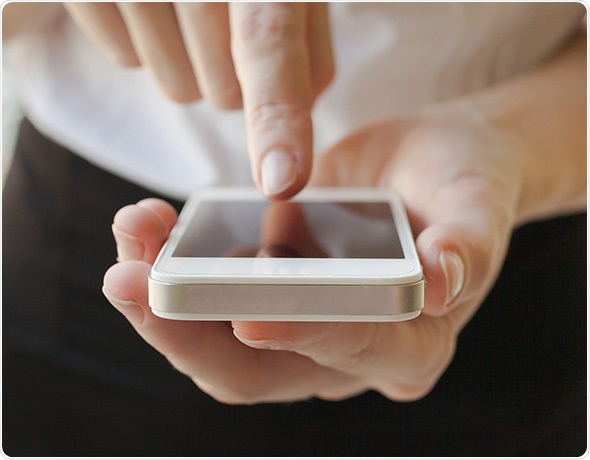New Smartphone technology has been developed that can detect and count wriggling parasitic worms in a drop of blood.
The technique offers accurate results quickly, providing health workers in Africa with the critical information they need to make potentially life-saving decisions in the treatment of onchocerciasis (river blindness) and lymphatic filariasis.
 Shutterstock.com / KieferPix
Shutterstock.com / KieferPix
As reported in Science Translational Medicine, the “CellScope Loa” system, designed by UC Berkeley engineers, scans the blood and uses an app to automatically detect any parasites moving about in the sample.
”This is the first device that combines the imaging technology with hardware and software automation to create a complete diagnostic solution,” says professor of bioengineering at UC Berkeley, Daniel Fletcher.
River blindness is the second leading cause of infectious blindness across the globe and lymphatic filariasis, which is highly endemic in some areas of Africa, causes the painful and disfiguring condition elephantiasis.
These diseases can be treated with a drug called ivermectin, but this treatment is potentially dangerous to patients who are already infected with another parasitic worm called Loa loa or African eye worm. When the blood level of Loa loa is high, the use of ivermectin can lead to severe and even fatal neurological damage.
However, conventional tests for detecting Loa loa are time consuming, requiring technicians to manually count the worms in a blood film using laboratory equipment. This makes the process unsuitable for use in the field or in mass campaigns to administer ivermectin.
How CellScope Loa Works
Now, in collaboration with the US National Institutes of Health, the UC Berkeley team have modified a Smartphone to automate this process. They paired the Smartphone with a 3-D plastic base, on which a blood sample is placed. With just one touch of the screen, a health worker can start Bluetooth wireless communication between the phone and controllers in the base, to initiate sample analysis. Gears move the sample in front of a camera and the characteristic “wriggling” movement of the worms is automatically analyzed by an algorithm and captured in the phone. The worm count result is then displayed on the screen.
This novel system can measure Loa loa levels in less than 3 minutes, enabling healthcare workers to quickly determine whether or not it is safe to administer ivermectin.
Aquatic ecologist Vincent Resh from UC Berkeley says: “The availability of a point-of-care test prior to drug treatment is a major advance in the control of these debilitating diseases…
…The research offering a phone-based app is ingenious, practical and highly needed.”
Early trials conducted in Cameroon have demonstrated the success of CellScope Loa, which is now planned for testing in a population of 40,000 in Cameroon.